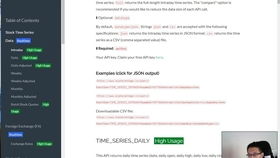How to Make Money Trading Currency Online
Trading currency online, also known as forex trading, has become an increasingly popular way to make money for individuals around the world. With the rise of technology and the internet, it’s now easier than ever to get involved in this dynamic market. Whether you’re looking to supplement your income or make a full-time living, here’s a detailed guide on how to make money trading currency online.
Understanding the Basics of Forex Trading

Before diving into the world of forex trading, it’s crucial to understand the basics. The forex market is the largest financial market in the world, with an average daily trading volume of over $5 trillion. It operates 24 hours a day, five days a week, and involves the buying and selling of currencies from different countries.
When you trade currencies, you’re essentially speculating on whether one currency will strengthen or weaken against another. For example, if you believe that the Euro will strengthen against the US Dollar, you would buy Euros and sell US Dollars. If the Euro does strengthen, you’ll make a profit when you sell your Euros back for US Dollars.
Choosing a Reliable Broker

The first step in your journey to making money trading currency online is to choose a reliable broker. A broker is an intermediary that allows you to access the forex market. Here are some key factors to consider when selecting a broker:
- Regulation: Ensure that the broker is regulated by a reputable financial authority, such as the Financial Conduct Authority (FCA) in the UK or the Commodity Futures Trading Commission (CFTC) in the US.
- Spreads and Commissions: Look for a broker with competitive spreads and low commissions, as these can significantly impact your profits.
- Trading Platforms: Choose a broker that offers a user-friendly trading platform with advanced features and tools.
- Customer Support: Ensure that the broker provides reliable customer support, including 24/7 assistance.
Some popular forex brokers include XM, AvaTrade, and Oanda.
Developing a Trading Strategy

A trading strategy is a set of rules and guidelines that you follow when making trading decisions. A well-defined strategy can help you manage risk and increase your chances of making profitable trades. Here are some key components of a successful trading strategy:
- Market Analysis: Use technical analysis, fundamental analysis, or a combination of both to analyze market trends and make informed trading decisions.
- Entry and Exit Points: Determine the conditions under which you’ll enter and exit a trade, including your stop-loss and take-profit levels.
- Risk Management: Set a maximum amount of capital you’re willing to risk on a single trade and stick to it.
- Position Sizing: Calculate the size of your position based on your risk tolerance and the volatility of the currency pair you’re trading.
It’s important to note that there is no one-size-fits-all trading strategy, and it’s essential to find a method that works for you.
Practicing with a Demo Account
Before you start trading with real money, it’s a good idea to practice with a demo account. A demo account allows you to trade in a simulated environment without risking any real capital. This can be an excellent way to test your trading strategy and gain confidence in your abilities.
Many brokers offer demo accounts, and they typically come with the same features as a live trading account. Take advantage of this opportunity to refine your trading skills and develop a better understanding of the forex market.
Managing Your Emotions
Emotions can play a significant role in your trading success. Fear, greed, and overconfidence can lead to poor decision-making and ultimately, financial losses. Here are some tips for managing your emotions:
- Stay Disciplined: Stick to your trading plan and avoid making impulsive decisions based on emotions.
- Take Breaks: Take regular breaks from trading to clear your mind and avoid burnout.
- Learn from Your Mistakes: Analyze your losses and learn from them to improve your trading skills.
Remember that trading is a marathon, not a sprint. It takes time and patience to develop a successful trading strategy and achieve consistent profits.



